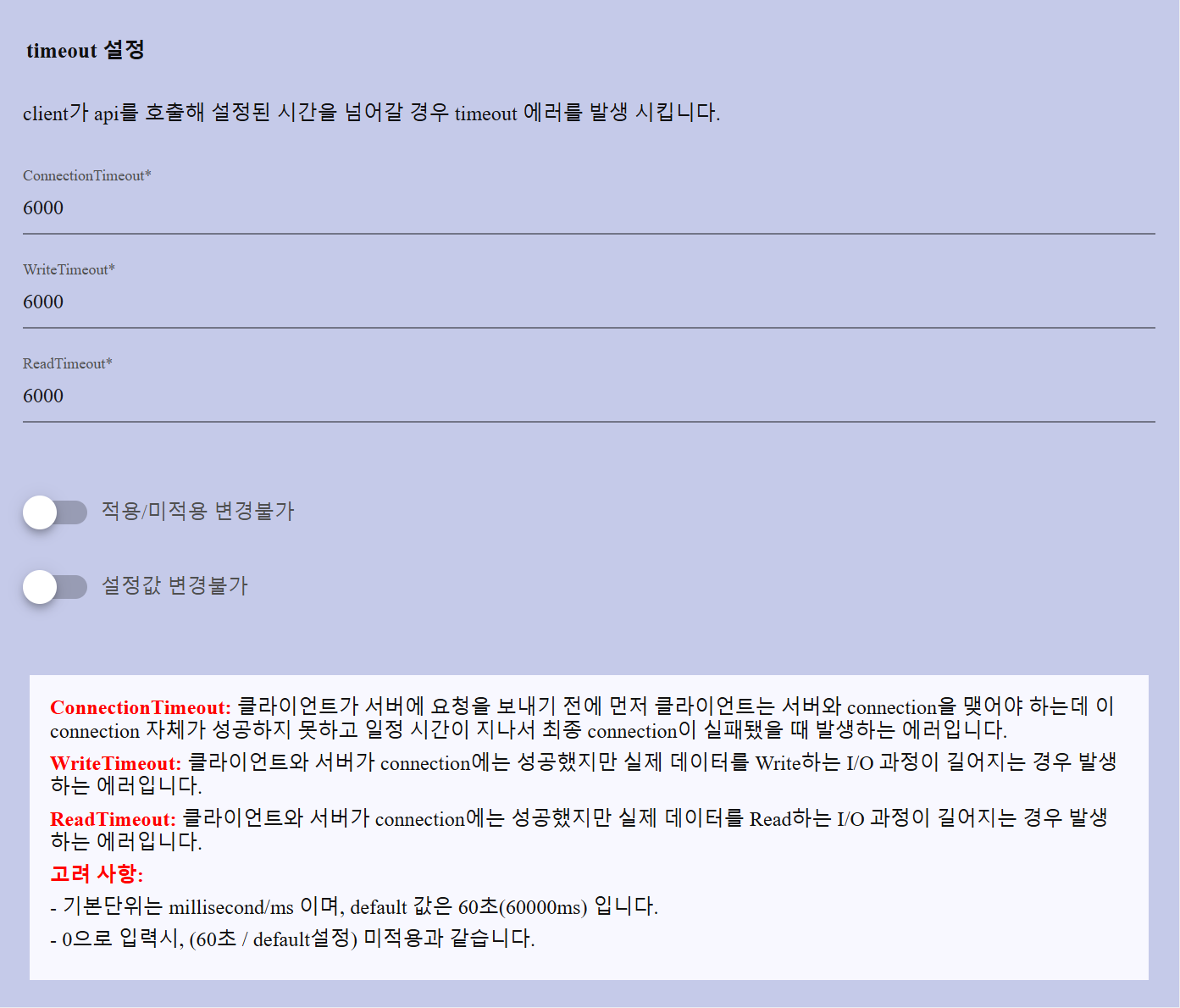Timeout
Overview
The Timeout policy is used to define time limits for different stages of communication between the client and the API server. If the API call exceeds any of the specified durations, a timeout error will be triggered and the request will fail.
This policy helps protect the system from long-hanging requests and enforces upper time limits on network operations.
Configuration Details

| Field | Description |
|---|---|
| ConnectionTimeout | Time limit for establishing a connection between client and server. If the connection cannot be established within this time, a timeout error is returned. |
| WriteTimeout | Time limit for the client to send (write) data to the server after the connection is established. If writing takes too long, a timeout error is raised. |
| ReadTimeout | Time limit for reading a response from the server after the connection is established. If reading takes too long, a timeout error is triggered. |
note
Cannot be changed: Toggle to prevent this policy from being removed.
Cannot change the setting value: Toggle to prevent changes to the configuration values after setup.
All time values are in milliseconds.
Default value is 60000ms (60 seconds) for all timeouts.
Setting a value to 0 disables the timeout for that phase (equivalent to no timeout).
Timeout Logic Summary
- ConnectionTimeout is used to prevent long delays during connection establishment.
- WriteTimeout ensures that sending data (e.g., request body) doesn’t take indefinitely long.
- ReadTimeout ensures that the API responds in time after the connection is made.